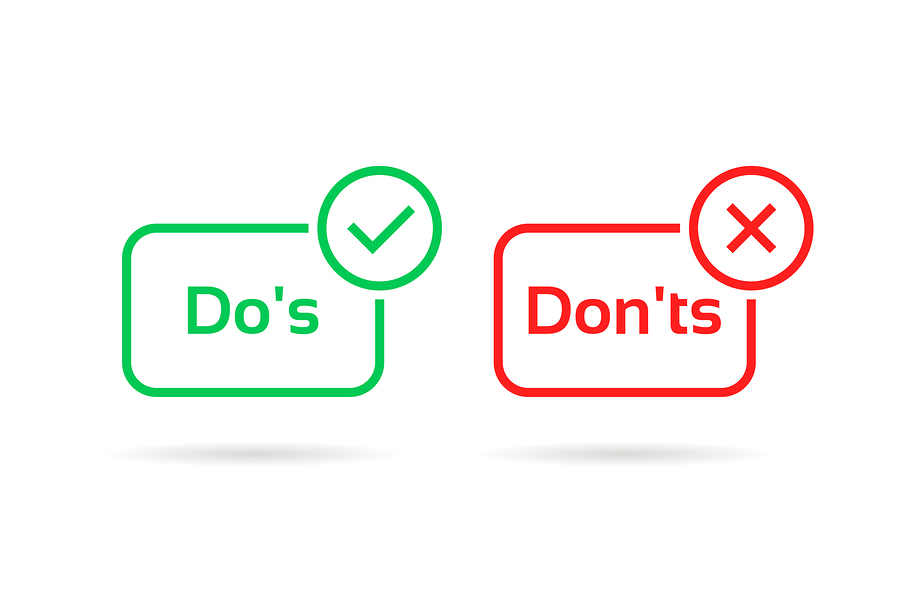Caregiver Do’s and Don’ts
Category:

Caring for a senior loved one can be both rewarding and challenging. As new health issues pop up, a family caregiver may need to learn how to manage complex medical issues. That can be stressful and frightening. Time management is another daily struggle—there just doesn’t seem to be enough hours in the day to get everything done.
Then there is the emotional side of watching the health of someone you love decline. It can be difficult and even devastating.
Caregivers often worry about whether they are doing a good job managing all these concerns. Unfortunately, it’s a role that doesn’t come with an instruction manual. Understanding what to do—and what not to—isn’t easy.
We share these caregiver do’s and don’ts in the hope that you will find them helpful as you care for a loved one.
The Do’s and Don’ts of Caregiving
1. Don’t take over.
Our first caregiver don’t is to avoid taking over. When you are busy juggling the senior’s needs with the demands of your own job and family, it’s tempting to focus on getting everything on your to-do list done as quickly as possible. Caregivers often complete tasks without their family member because it’s faster.
But independence is important for people of all ages, including those who require a little extra assistance with the activities of daily living. By encouraging your senior loved one to do as much as they can manage, you help protect their self-esteem and dignity. Experts say this may also slow the progression of some diseases, such as Alzheimer’s.
2. Do establish daily and weekly routines.
While taking time to plan your schedule may feel like a luxury, it’s a definite caregiver do. Routines provide comfort and peace of mind. They keep you from worrying and wondering whether you’ve forgotten something important.
Planning also helps you use your time more efficiently. For example, you can identify your appointments for the week and cluster errands around those stops. You’ll also be able to spot scheduling conflicts that may require you to ask others for help.
3. Don’t try to do it alone.
This tip is both a do and a don’t for caregivers. It isn’t uncommon for family caregivers to feel duty bound to handle all of their senior loved one’s needs alone. In most cases, that just isn’t a realistic expectation to place on yourself. Instead, acknowledge that you can and should ask for and accept help. Doing so will make you a better caregiver in the end.
If you don’t have a friend or another family member who can pitch in, consider enlisting the services of a home care agency. Professional caregivers can assist with personal care duties, light housekeeping, grocery shopping, and other daily activities.
4. Do stay informed on research and trends.
Another important caregiver do is to stay on top of the latest trends in senior care and support for family caregivers. This will aid in growing your caregiving skills. One avenue for keeping up to speed is to subscribe to the Caring Times Blog. You’ll have updates delivered to your inbox a few times each month.
We promise not to spam you with ads or fill up your inbox with junk mail. You’ll receive only helpful resources and tools for family caregivers!
Subscribe
Date: 2019-10-23
Category:


